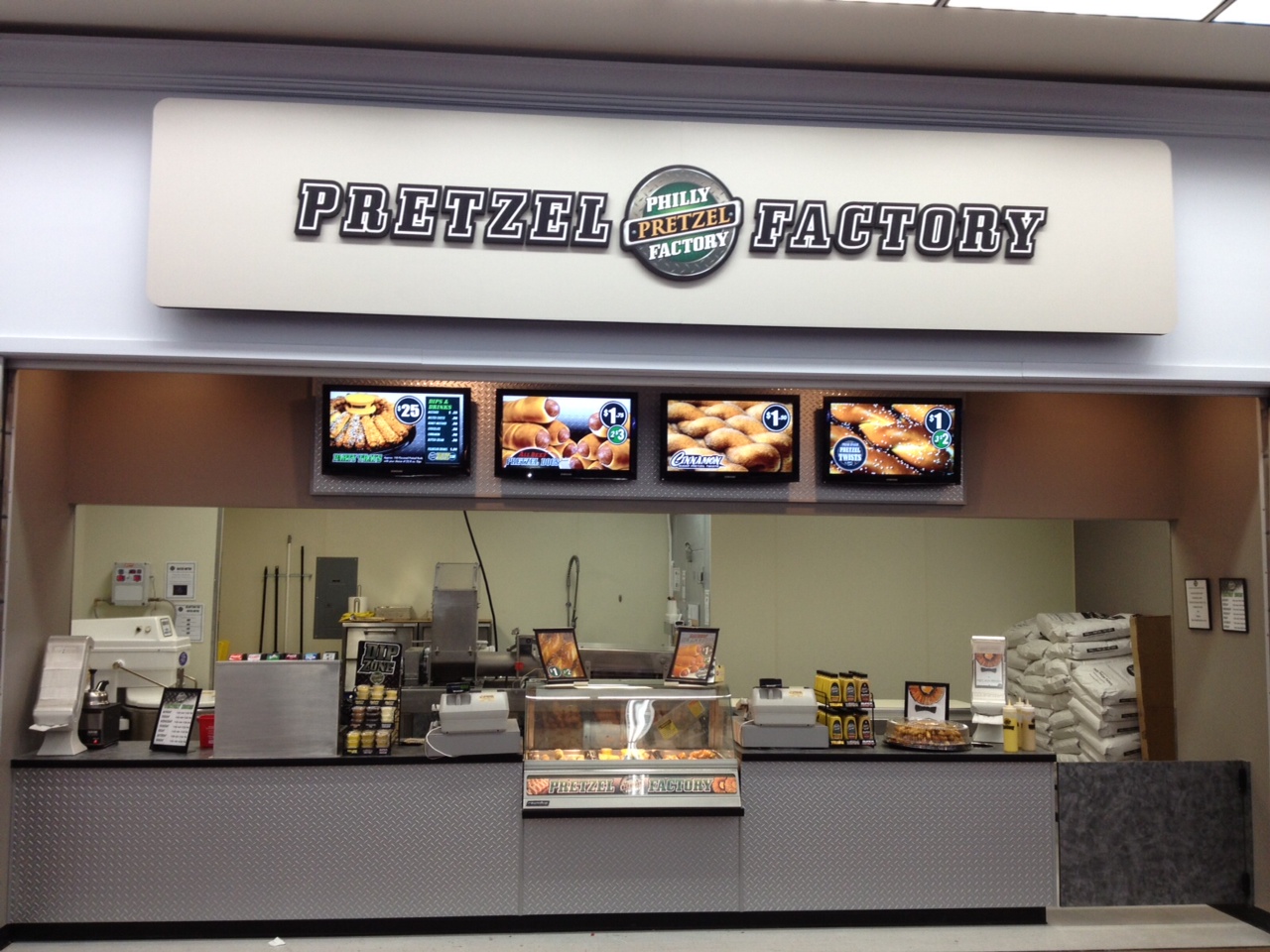When the economy soured, the quick-service industry was not exempt from repercussions, but many brands took the opportunity to go back to the drawing board to draft a survival strategy. At Philly Pretzel Factory, that survival strategy flourished into a partnership with big-box retailer Walmart, and it’s shaping the brand’s expansion strategy for a stable financial future.
Founded in 1995 by entrepreneur and longtime pretzel maker Dan DiZio, Philly Pretzel Factory distinguished itself from similar brands by serving Bavarian pretzels, says Marty Ferrill, president.
“It’s different than the pretzels from Auntie Anne’s or Wetzel’s Pretzel—that Pennsylvania Dutch–type pretzel,” he says. “That product is usually made with a lot of butter, cinnamon sugar, or other flavorings. Our pretzel is a traditional, German Bavarian–style pretzel, and that’s very popular in Philadelphia.”
The second key distinguisher between Pretzel Factory and its competitors is volume: Whereas many soft pretzel mall models rely heavily on foot traffic, Ferrill’s concept excels in wholesale orders. He says the brand’s traditional units form partnerships with local schools, cafeterias, office buildings, and retailers who order large quantities of soft pretzels. This, in turn, means a large kitchen operation.
“We have these really big ovens, big mixers, big equipment, and it really is a little factory,” Ferrill says. “These deliveries also require longer hours of operation in the morning and are more labor-intensive.”
The unique operation and product allowed Philly Pretzel Factory to expand and franchise at a steady rate—until 2008, when economic forces rocked the whole industry. “We started to look at nontraditional ways to do business so we could lower our investment,” Ferrill says. “We started with a couple of the nontraditional models in amusement parks.”
Ferrill says the brand’s traditional model investment is $250,000–300,000, and the operation requires 1,200 square feet of space to accommodate the large kitchen equipment. The nontraditional model reduced both investment and unit size, making it more appealing to more franchisees, he adds.
The store model for amusement parks translated well into a test unit in a Pennsylvania Walmart, and in less than a year and a half, Philly Pretzel Factory franchised ten Walmart units. Another 28 are expected to open this year.
“The volume of a Walmart model compared to a traditional model seems to really depend on location, and traffic won’t be as high as in some of our traditional models,” Ferrill says. “But the unit economics are a lot different in terms of labor, build out, and financing.”
Ultimately, entering the nontraditional space meant gaining stability for the quick-serve brand, and Ferrill says the Walmart model will contribute to growth and expansion heavily in the coming years.
By Tamara Omazic


